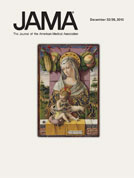 Since we first wrote about the travails of Spirocor’s bedside, noninvasive test for coronary artery disease, we’ve been trying, without much success, to find out more information.
Since we first wrote about the travails of Spirocor’s bedside, noninvasive test for coronary artery disease, we’ve been trying, without much success, to find out more information.
But as they say about every dog, our day has come.
As we initially reported, Ron Waksman, a prominent Washington, D.C. cardiologist and editor-in-chief of Cardiovascular and Revascularization Medicine, was first author of one of two papers about the Spirocor technology that were published in 2010. The other, by Shiyovich, et al, was retracted earlier this month by the American Journal of the Medical Sciences, which triggered our interest in this case.
At the time, we couldn’t find any evidence that Waksman’s article had been retracted, and Waksman has not responded to multiple requests for comment. Today we spoke with Kate Coons, the journal’s managing editor, who told us that the authors had sought a retraction for the article, “An innovative noninvasive respiratory stress test indicates significant coronary artery disease,” in December, and that it had posted one on its website on Jan. 6 of this year. It will be in print in an upcoming issue.
The notice is not available on Medline, but it can be found on ScienceDirect: Continue reading More on SPIROCOR noninvasive heart disease test: Second retraction (in fact the first) says little
 An investigation by Emory University in Atlanta has led to the retractions of three articles containing falsified data, but the ambiguous wording of the notices leaves us wondering if they are implying more than they state.
An investigation by Emory University in Atlanta has led to the retractions of three articles containing falsified data, but the ambiguous wording of the notices leaves us wondering if they are implying more than they state.





